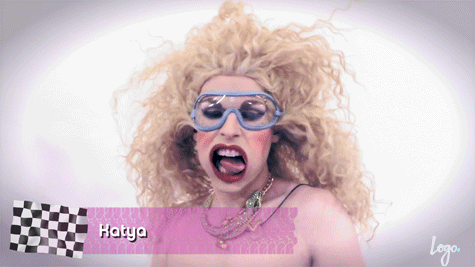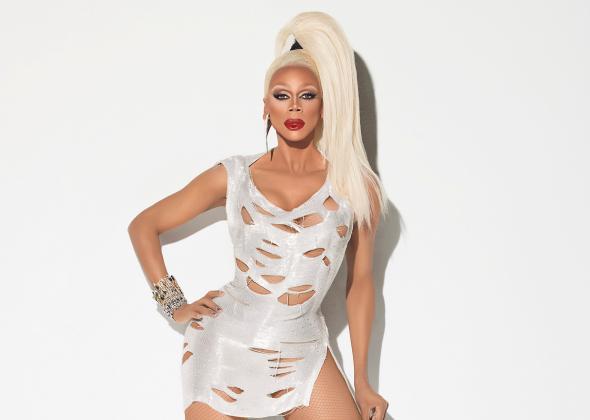On Monday night, RuPaul took a stand on one of the Internet’s most contentious debates: the question of how to pronounce the word GIF. After a challenge on her eponymous show, RuPaul’s Drag Race, she announced that images of the event would be available online as animated GIFs. Enunciating with special care, RuPaul intoned the word with a beginning similar to that of the peanut butter Jif, thereby entering into a debate that has raged for years.*
Over the course of its seven seasons, RuPaul’s Drag Race has spawned entire websites dedicated to cataloging the quips, reactions, and triumphs of its contestants. Profoundly savvy about the impact and reach of the show, RuPaul cultivates such content, as with Monday’s challenge, which featured contestants (and for some reason, electronic musician Moby) contorting their made-up faces while standing in the path of leaf blowers. In and of itself, the challenge made little sense, but animated images of it will likely live on forever.

GIF courtesy LogoTV.tumblr.com.
For almost as long as it has existed, fans of the GIF format have argued over whether it should be pronounced with a hard G, as in gift, or a softer one, as in jiff. While one survey suggests that 70 percent of people take the former option, the format’s creator, Steve Wilhite, has insisted on the latter. Far from resolving the issue, Wilhite’s intervention only intensified the conversation, inspiring partisans of both styles to make their cases more frequently and more forcefully.
Perhaps because gihf remains the more normative approach, pronouncing it jiff has an almost activist quality. Merely by speaking it with care and deliberate precision, RuPaul gave the impression of a ruler handing down a weighty decision. On Twitter, fans of the show responded with bemusement, some expressing a sentiment of betrayal, while others applauded their queen for fighting the good fight.
Some, however, took the occasion as an opportunity to snipe at RuPaul, alluding to other debates and conversations. As one put it, “@rupaul care [sic] more about pronouncing .gif correctly than her use of the t word.”
This user refers to outraged protests by trans- activists who object to RuPaul’s comfort with the slur tranny. This firestorm was itself sparked in part by “Female or Shemale,” a tastelessly titled mini-challenge on the sixth season of the show in which contestants were shown photographs of body parts and asked to identify whether they belonged to biological men or women. This called attention to show’s staple “She-mail” segments, in which RuPaul offers enigmatic messages to the show’s contestants. In responding to the first objection, the show’s producers also removed the word “she-mail” from earlier episodes.
We’re often told that we live in an age of distraction and passive consumption. But the GIF debate emblematizes the Internet’s surprising ability to make us pay attention to the particulars of language. Along similar lines, it’s no surprise that RuPaul’s Drag Race inspired online controversy for its use of the webby pun she-mail. The easiest thing to talk about on the Internet may be the ways we talk on the Internet. If that lets us have a silly conversation, like the one about GIFs, good. And if it inspires more serious ones, all the better.
For what it’s worth, the word should be pronounced like gift. Whatever Wilhite says, “GIF” is from “graphics image format,” and graphics has a hard g. But some things are easy to take a stand on. Especially those that we can argue about without real consequence.
*Correction, March 10, 2015: This post originally misstated that RuPaul pronounced the word GIF to rhyme with tiff, thereby entering into a debate that has raged for years. The disagreement over the pronunciation is hard G versus soft G; both rhyme with tiff.
